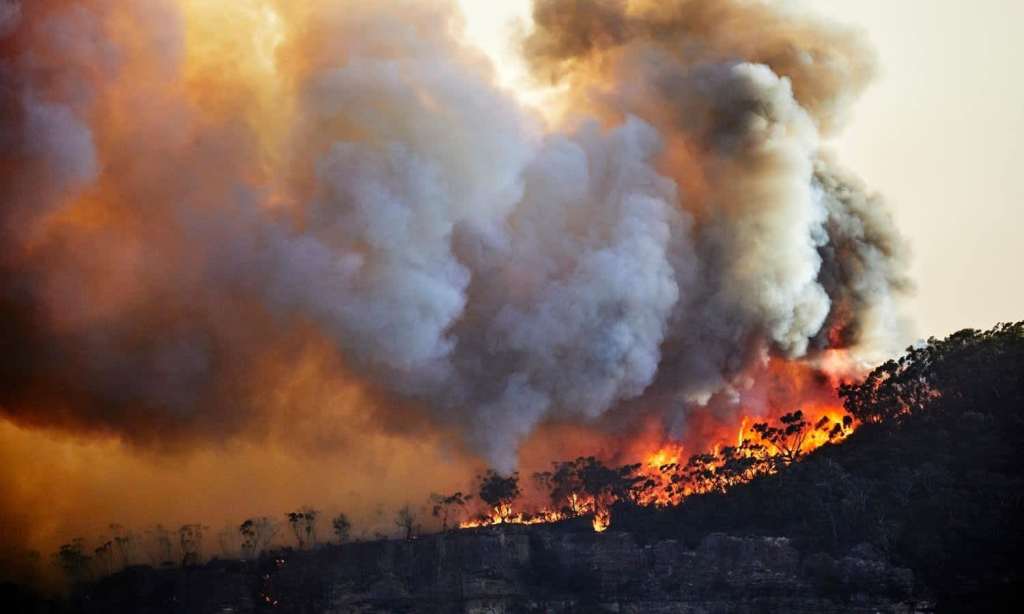Climate change is devastating for the earth. The consequences of climate change on the natural environment and its ecosystems are far-reaching. In Australia alone, the affect of climate change can be seen in the coral bleaching on the Great Barrier Reef as well as the loss of certain wildlife and plant populations.
In case you need a refresher, climate change is caused by greenhouse gas emissions, which according to the Climate Council, are released from the burning of fossil fuels including coal, oil and gas.
As our earth bears the brunt of human-induced climate change in the form of rising sea levels and melting glaciers, we have also started to feel the effects of this change as humans. From a health perspective, climate change poses a threat to our food security while also exacerbating pre-existing health conditions, which puts our health system under strain.
According to the World Health Organisation, climate change is expected to cause roughly 250,000 additional deaths per year across the world from malnutrition, malaria, diarrhoea and heat stress between 2030 and 2050.
Just last year, the Australian Medical Association formally declared climate change to be a health emergency — something the World Health Organisation did in 2015, calling it the “greatest threat to global health in the 21st century.”
“There is no doubt that climate change is a health emergency,” AMA president, Tony Bartone, said in 2019. “The AMA accepts the scientific evidence on climate change and its impact on human health and human wellbeing,” he says.
While big business (including just six coal producers) are the biggest emitters of greenhouse gases in Australia, it’s important we all play a role as individuals. If you’re not aware of the health implications of climate change (and how it is ultimately affecting you and your family personally), here’s what you need to know.
— Extreme weather and heatwaves
The most visible manifestation of climate change in Australia has to be the weather. Extremely hot weather and heatwaves can have a major impact on your health through dehydration, exhaustion and heat stress. In some cases, extreme heat can result in death.
Heat can also worsen existing health conditions like heart and lung disease. According to NSW Health, more people are admitted to hospital and die during heatwaves compared to more moderate temperatures.
— Natural disasters
Australia knows the impact of natural disasters and extreme weather events all too well. Climate change can increase the number and severity of storms as well as flash flooding, bushfires and droughts. According to the World Health Organisation, the number of weather-related natural disasters has more than tripled since the 1960s.
In Australia, we have suffered through drought and experienced bushfires that have obliterated land and communities as well as our flora and fauna. NSW Health highlights how these natural disasters and extreme weather events can worsen pre-existing illnesses and lead to injuries and death.
The impact of these weather-related events on individuals mental health is also great. The mental health strain is particularly devastating for the communities who live and work in areas that experience drought and natural disasters.
In the past, farming communities affected by drought also were also dealing with lower incomes, higher workloads, social disruption and mental health issues including anxiety and depression, says NSW Health.
When bushfires ravage communities and residents are forced to relocate temporarily (or they lose their home), this can also cause extreme stress and have a negative impact on their sense of belonging.
— Airborne pollutants
Air quality is another large piece of the climate change pie. Much of the country experienced poor air quality in late 2019 and early 2020 due to the bushfires that were raging across the country and this had a direct impact on our respiratory health.
According to the University of Sydney, the leading causes for a decline in air quality in Australia can be attributed to the fossil fuel industry, dust, bush and landscape fires as well as pollen and motor vehicle exhausts.
In Australia alone, air pollution (largely from burning fossil fuels) causes roughly 3,000 premature deaths per year, says the Climate Council. Climate change affects air quality through the release of pollutants like ozone and particulate matter as well as aeroallergens like pollen and mould.
According to NSW Health, warmer weather (including milder winter seasons) can also increase the production of pollen. This airborne allergen can cause hayfever and worsen asthma, a potentially life-threatening disease of the lungs.
Pollutants like ozone and particulate matter also increase as the temperature rises and have been shown to worsen coughing, reduce lung capacity and have a negative impact on cardiovascular diseases, which in some cases, can lead to death.
— Food quality and quantity
Climate change poses a massive threat to our food security, which has a flow-on effect to our health. A 2015 report from the Climate Council found that the price, quality and seasonality of Australia’s food is increasingly being affected by climate change.
Extreme weather events coupled with a warming climate and changing weather patterns all affect Australia’s food supply chain and the farmers who are producing the food.
“Australia is one of the most vulnerable developed countries in the world to climate change impacts,” the Climate Council’s Professor Lesley Hughes said. “This is already posing very significant challenges to food production.
“Food prices will continue to go up, the quality of food could be compromised and the seasonality of food could change as the climate continues to warm and weather patterns become more unpredictable.
“Many of our favourite foods, including milk, fruit, vegetables, wine and beef are already being affected by climate change and these impacts will grow as weather extremes get worse.”
Insufficient food production will not only increase the price of food but also lower the ability of people to access proper nutrition. As NSW Health points out, this could make people more vulnerable to disease and poor health in general.







